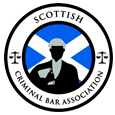Appeal under section 65 of the Criminal Procedure (Scotland) Act 1995:- The appellant appealed against the sheriff’s decision on 30 May 2022 to extend the twelve month time limit for commencing a trial under section 65(3)(b) of the Criminal Procedure (Scotland) Act 1995. The court here considered the extent to which courts should place reliance on what was said in the cases of Swift v HMA 1984 JC 83 and Early v HMA 2007 JC 50. The court considered the circumstances of the present case and the reasons put forward by the Crown for the extension. The court refused the appeal. The court considered the changes in practice since Swift in 1984. The court referred to HMA v Graham 2022 SCCR 68 under reference to Uruk v HMA 2014 SCCR 369 and the opinions of the court (LJC Carloway) and reiterated that the dicta in Swift and Early had to be read according to the context of:- (1) the criminal justice system in place at the time, in comparison to that in the current era; and (2) their facts. The court noted that at the time of Swift control of the progress and management of cases was almost exclusively in the hands of the Crown. In addition, the attitude of the courts to the non-compliance of witnesses to engage in proceedings has shifted considerably and measures have been put in place to secure the evidence of vulnerable witnesses. The court observed that neither Swift nor Early were about the adjournment of trial diets and consequent extensions of time to accommodate a new diet but, rather, involved faults in the service of the indictment or the content of the libel and what was said in them (about a 2 stage test) should not be applied to cases, like the present, where, in contrast to Swift and Early, the Crown brought the case to a trial diet within the twelve month limit. The court considered the particular circumstances relating to the present case and the reasons for the adjournments (including repeated absences of the complainer who spoke to the main charge which libelled that between January and July 2020 the appellant engaged in an abusive course of conduct towards his partner contrary to section 1 of the Domestic Abuse (Scotland) Act 2018) and noted that those absences could not be attributed to fault on the part of the Crown, rather, understandable hesitation on the part of a vulnerable complainer to attend court. The court considered that it would be unacceptable to end the prosecution without knowing the reasons for the complainer’s reluctance to appear in court. The court went on to identify the test the appellant had to meet to succeed in his appeal, namely, he required to persuade the court that the sheriff erred in granting the extension of time by the Crown failing to show “cause”. The court stated that Swift and Early were from different eras and whilst the two questions referred to in the dicta of these cases may still be asked, the central question for the court in considering whether to halt a solemn prosecution due to the non-appearance of a crucial Crown witness was whether it is in the interests of justice to do so, being a matter of balancing the interests of an accused in being brought to trial within the statutory time limit with those of the complainer and the public in general in allowing the system of justice to determine the charges libelled. The court stated that if the interests of justice merit the time bar being extended cause to do so will have been shown.
Euan A. Dow, Advocate
Euan A. Dow, Advocate,
Optimum Advocates, Glasgow High Court, 1 Mart Street, Saltmarket, Glasgow, G1 5JT

